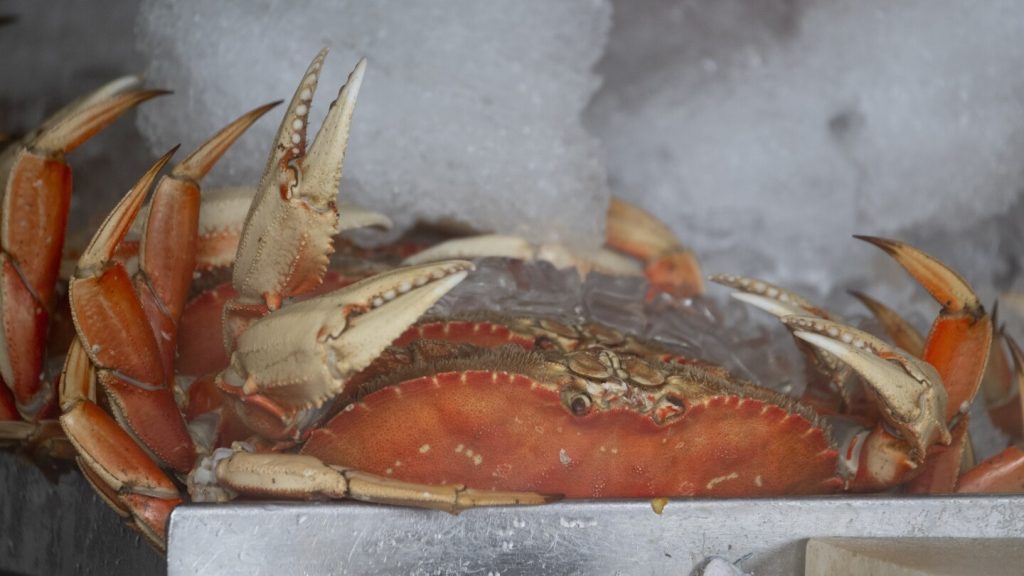The commercial Dungeness crab season in California will be shortened to protect humpback whales from getting tangled in trap and buoy lines, officials announced on Thursday. The restrictions will be in place from April 8 for waters between the Mendocino-Sonoma county line and the Mexico border. Recreational crabbers will be able to use other methods such as hoop nets and crab snares. In areas north of the Mendocino-Sonoma county line to the Oregon border, commercial crabbing will only be permitted to a depth of 180 feet. This decision was made after aerial and vessel surveys in mid-March showed increasing humpback whale numbers, raising concerns about entanglement risk. The situation will be reassessed in mid-April.
Humpback whales are at risk of getting caught in the vertical ropes connected to heavy commercial traps, which can lead to injuries, starvation, or exhaustion that may result in drowning. The whales migrate annually from Mexico’s Baja California peninsula to birth calves, and in the spring, summer, and fall, they feed on anchovies, sardines, and krill off the California coast before returning south. The commercial crab industry is a significant fishery in California, but for the past six years, there have been delays and prohibitions on crabbing seasons due to the potential risk to whales. This latest decision to curtail the crab season is aimed at protecting humpback whales during their foraging period off the California coast.
The restrictions on commercial crabbing will have significant implications for fishermen and the industry as a whole. The state Department of Fish and Wildlife’s decision to limit crabbing activities is a proactive measure to prevent harm to humpback whales and reduce the risk of entanglement in trap and buoy lines. While this move may impact the livelihoods of crabbers and the availability of Dungeness crab for consumers, it reflects a commitment to conservation and marine mammal protection. The department will continue to monitor whale numbers and behavior to determine when it is safe to resume full commercial crabbing activities.
The curtailment of the Dungeness crab season highlights the ongoing challenges faced by the commercial fishing industry in balancing economic interests with environmental conservation efforts. The need to protect endangered species like humpback whales and prevent harm to marine ecosystems requires careful management of fishing practices and regulations. The restrictions on crabbing activities serve as a reminder of the interconnectedness of human activities and the natural world, and the importance of sustainable practices to ensure the long-term health and viability of marine resources. By working together with stakeholders, government agencies can find solutions that support both conservation goals and the livelihoods of fishermen.
As the situation with humpback whales and commercial crabbing continues to evolve, stakeholders will need to collaborate on sustainable solutions that prioritize the protection of marine wildlife while also supporting the economic interests of fishermen and the commercial fishing industry. Ongoing research and monitoring efforts will be crucial in understanding the impact of human activities on whale populations and identifying measures to mitigate risks of entanglement and other threats. By taking proactive steps to address these challenges, California can work towards a more sustainable and environmentally responsible approach to its fishing industry, ensuring the protection of marine life for future generations.


